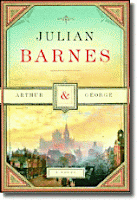 J. Allyn Rosser’s new collection, Foiled Again, won the 2007 New Criterion Poetry Prize. Her previous books are Misery Prefigured, and Bright Moves. She has received numerous other awards for her work, among them the Morse Poetry Prize, the Peter I.B. Lavan Award for Younger Poets from the Academy of American Poets, the Crab Orchard Award, the J. Howard and Barbara M. J. Wood and Frederick Bock prizes from Poetry, and fellowships from the National Endowment for the Arts, Yaddo, Bread Loaf, the Ohio Arts Council and the New Jersey State Council on the Arts.
J. Allyn Rosser’s new collection, Foiled Again, won the 2007 New Criterion Poetry Prize. Her previous books are Misery Prefigured, and Bright Moves. She has received numerous other awards for her work, among them the Morse Poetry Prize, the Peter I.B. Lavan Award for Younger Poets from the Academy of American Poets, the Crab Orchard Award, the J. Howard and Barbara M. J. Wood and Frederick Bock prizes from Poetry, and fellowships from the National Endowment for the Arts, Yaddo, Bread Loaf, the Ohio Arts Council and the New Jersey State Council on the Arts.Rosser currently teaches at Ohio University.
I recently asked the poet what she reading. Her reply:
Listen to J. Allyn Rosser read her poetry, and read (or listen to) the poems "Strange State, Wrong Highway, Cold Night," "Unthought," and "Fourteen Final Lines" at Slate.By my estimation, there are 2,684 devastatingly original, truly astounding novels that I have not yet read (not including those not yet written.) I’m currently reading one of them, Balzac’s Illusions Perdues [Lost Illusions] about whose protagonist Oscar Wilde said: “One of the greatest tragedies of my life is the death of Lucien de Robempré.... It haunts me in my moments of pleasure. I remember it whenever I laugh.”
Every night I’ve been reading David Copperfield aloud with my husband and 11-yr-old daughter.
I’m translating (rereading) Olivia Rosenthal’s On n’est pas là pour disparaître, avery good experimental novel involving Alzheimer’s disease by a Parisian writer. Find me a publisher for its English version and I’ll send you a free copy and a box of Pierre Marcolini chocolates....
I’m reading Robert Pinsky’s new collection, Gulf Music, which is stunning in the traditional Pinsky way and in some brand new ones. Several poems I can’t get over: “Louie Louie,” “Poem of Disconnected Parts,” “Pliers.” One of the very few contemporary poets who can write about political matters unstridently, and whose content and form are in constant conversation.Beside my favorite reading chair, books by three strangely underrated poets: Josephine Jacobsen’s In the Crevice of Time, Chase Twichell’s Dog Language and Claire Bateman’s Clumsy. On the same table is one of those books I can pick up any time and slip inside anywhere, happily: Barbara Hurd’s Stirring the Mud, whose sagacity and refreshing perspective provide great mental ventilation.
Recently I stumbled across an intriguing novella (using the term loosely) by the Turkish writer Bilge Karasu, The Garden of Departed Cats. I’m not sure that I like the book, but I just can’t stop reading the thing, alternately irritated and charmed. It contains a series of fables thatinterleave the fragmented narrative. Had he been reading Lydia Davis, Calvino and Borges, some of my favorites, while composing this? but was he also having digestive problems?
I am pathologically still reading Don DeLillo’s wonderful Falling Man (pp. 96-100 about the poker games: perfect), though it came out almost a year ago. I have slowed to a few pages every other week, because I don’t want to face again that terrifying void separating DeLillos: how long will it be before his next? I think in the coming centuries we/they/the robots will be reading DeLillo to try to understand how we got ourselves into this mess and how we coped with it.
--Marshal Zeringue











































